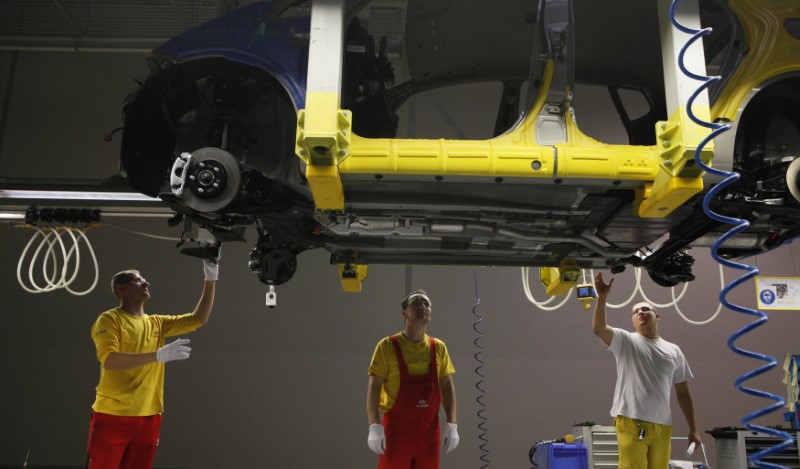BRATISLAVA (Reuters) - Carmakers in four central European countries will be short of 100,000 skilled workers in coming years, automotive industry associations from Slovakia, Czech Republic, Hungary and Poland said on Tuesday.
Falling unemployment and growing pressure on wage growth is threatening the current economic model in the so-called Visegrad countries which have so far benefited from a good geographic position and cheap labour.
"This is a problem that we have to face if we want to keep our position in the region," Polish Automotive Industry Association President Jakub Farys told reporters.
"Twenty-five years ago we were cheap (...) We are still relatively cheaper than other western European countries but it's not the most important factor. We have to have a very high-quality product, for which we need skilled workforce," he said.
The Visegrad countries made nearly 3.651 million cars last year, about a quarter of the EU's production. The industry employs more than 630,000 people directly and 1.3 million indirectly.
"We are approaching the limits of maximum possible capacity (of automotive plants)," Czech Automotive Industry Association President Bohdan Wojnar said.
The associations called on governments to reform education systems and focus more on mathematics and sciences to prepare workers for the future needs of the automotive industry.
Until then, greater support for the mobility of domestic and international workers could patch the hole in the labour market, they added.
Slovakia is the world's biggest per-capita car producer with plants run by Volkswagen (DE:VOWG_p), Peugeot (PA:PEUP), Kia (KS:000270) and Jaguar Land Rover [TAMOJL.UL].
The Czech Republic is home to Volkswagen's Skoda Auto, Hyundai Motor Co (KS:005380) and a joint venture of Toyota (T:7203) and Peugeot.

In Hungary, Daimler AG (DE:DAIGn), Audi (DE:NSUG), Suzuki (T:7269) and General Motors (N:GM) have plants, while Poland has Volkswagen, General Motors' Opel unit and Fiat (MI:FCHA).